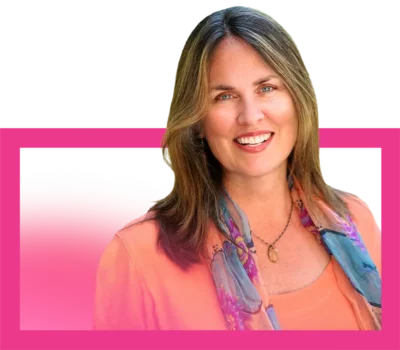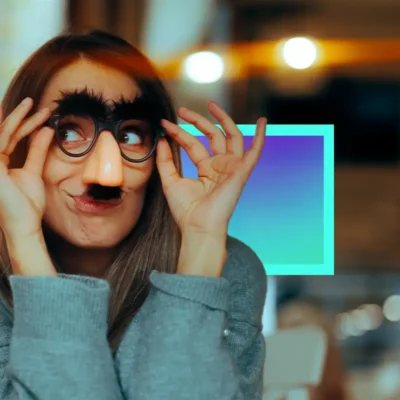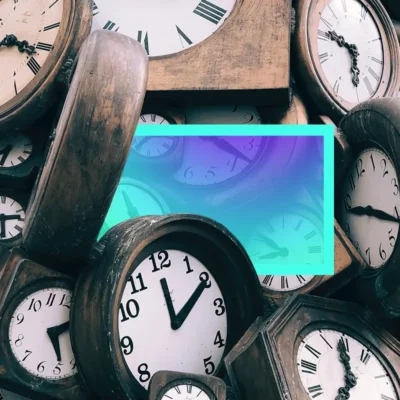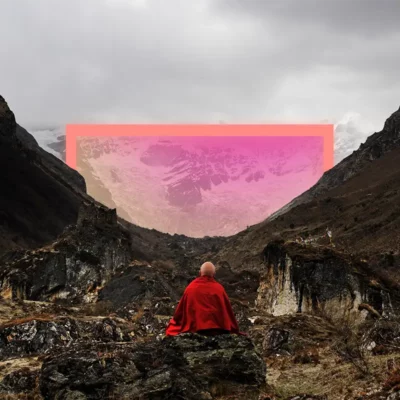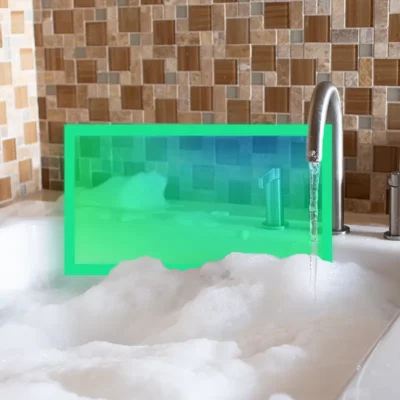A more spacious response to life
Judith Grisel is an internationally recognized behavioral neuroscientist and professor of psychology known for her research on the role of the brain in drug addiction. She is also a former addict. Years into her sobriety, Judy still labors to escape the painful feelings of loneliness and emptiness that have been with her since childhood. But when a friend presents her with a puzzling gift – an empty bowl – she is finally able to embrace the difficult feelings she’s spent a lifetime evading, and make peace with them.
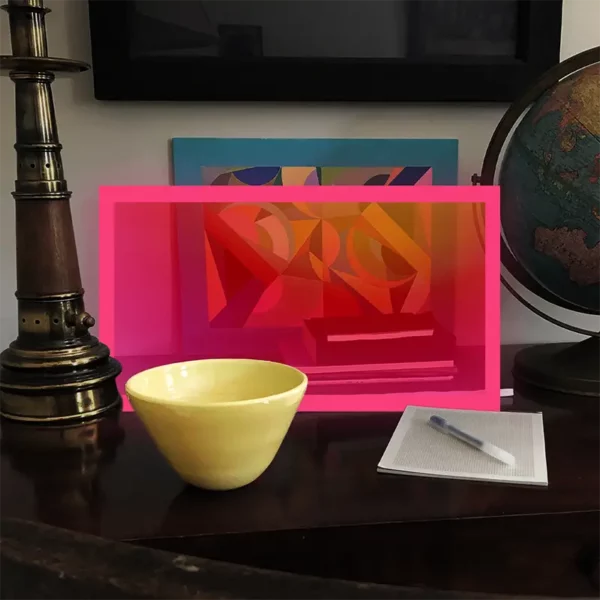
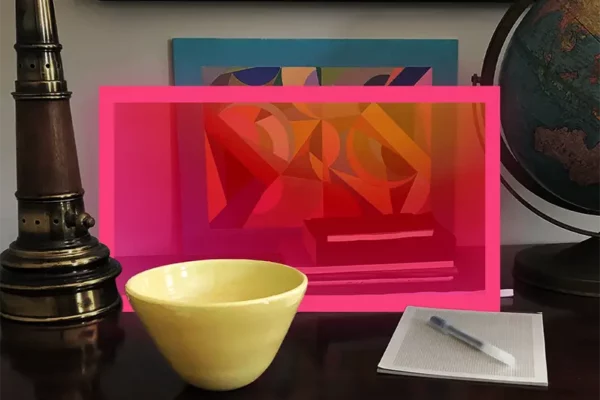
Table of Contents:
Transcript:
A more spacious response to life
JUDITH GRISEL: As I place the dishes on the counter, I ask her, “Why are you crying, Mommy?” And she says, “I’m crying because I’m so happy.” And it feels as if a hole begins to open in my stomach. A pit. It starts out the size of a mustard seed and grows quickly into an almond. By the time she finishes the sentence, it’s infinite.
ROHAN GUNATILLAKE: Judith Grisel is a behavioral neuroscientist whose fascinating studies about endorphins and addiction led her to make discoveries about the neural explanation for irrational choices around mind-altering chemicals. In her New York Times best-seller Never Enough, she places her very personal experiences with addiction into a science context, and explains why the brain and behavior are products of multiple influences – many coming from outside our heads. Judith’s Meditative Story today is compelling, and challenging. Mostly though, it is full of wisdom. I do hope you get as much out of it as me.
In this series, we combine immersive first-person stories and breathtaking music with the science-backed benefits of mindfulness practice. From WaitWhat and Thrive Global, this is Meditative Story. I’m Rohan, and I’ll be your guide.
The body relaxed. The body breathing. Your senses open. Your mind open. Meeting the world.
GRISEL: We live in a beautiful 200-year old colonial stone house that sits on a few sprawling acres. I walk out the back door onto the brick patio and through the yard, past some shriveled old apple trees to the willow grove, alongside the creek.
The creek is filled with crayfish, which I love to catch.
I am sitting in the hollow of a willow tree – a weeping willow. The branches hang low and they are easy to climb. Its leaves are pale silvery green; I hear them swaying in the breeze beneath an orchestra of birdsong. It’s late in the afternoon, kind of sunny outside but cozy and dry here in the hollow, and a little dark.
The hollow faces the creek, to the west. With the light coming through, it feels a bit like being under an umbrella. The walls of the hollow are soft, like wet sawdust, easy to break apart. A grown-up might only just fit inside but to me it is spacious – my back is up against the inside, my knees up by my chin. I have plenty of room.
I feel safe here, in the empty hollow. I am close to home, but it’s private. There are a lot of expectations in my house so I come here to escape.
I open the book in my lap to where I last left off, and I disappear into what feels like a whole other world.
We look like a family out of central casting. My father is an airline pilot for Pan Am. He flies out of Kennedy airport, which seems to me the height of glamor. He’s handsome, charming, funny, and a good skier.
My mother is beautiful, a nurse. She looks like Sophia Lauren – high cheekbones, deep-set brown eyes, wavy dark hair. She’s a staunch Catholic – no sense of humor, but fundamentally decent.
We eat well, take ski trips, and summer at Long Beach Island. At Christmas we get the bikes we want, we have pets in the house – a nice dog, cats. We have a great story about ourselves. And we have pictures on the mantel and along the walls that confirm the story: family-in-front-of-the-Christmas-tree pictures, photos of us smiling at happy events with cousins and grandparents.
There’s a pressure to look nice, act nice, be nice. We do chores. We help clean. We’re polite. I am expected to behave in a certain way.
In my bedroom, I am not allowed to hang up so much as a picture, or choose my own bedspread, or curtains. I don’t know what exactly my taste would be, but this isn’t it. And so I seek ways to escape.
I guess you could say that books are my first drug. I’m constantly starving for books. As soon as I can read, I read addictively. I am always reading. I read wherever I am: Upside down, on a bicycle, in the classroom, in the closet in my room, in the back of a car.
I am constantly starving for books. I visit the library and take out 10 or 12 at a time, which may last me a week.
Getting into a story, I am really able to live there. I read Little House on the Prairie series. Ridiculous stories about Ma and Pa and all these very polite kids who live in Kansas as settlers. It has nothing at all to do with my experience. But disconnecting from my own life, by getting into somebody else’s is such a relief.
There’s something so tidy, so reassuring about these stories. How the children just intuitively know what to do, and are trusted to do the right thing.
GUNATILLAKE: Let’s mirror a young Judith as she wraps herself in stories, imagine how she is in this moment and look to take on those qualities in ourselves. Her attention rapt, her mind absorbed. Finding solace and meaning in stories.
GRISEL: My mother spends a lot of time fretting about food. I am encouraged to be in the kitchen with her. And there are a lot of rewards here in the kitchen. To please my father I’ve learned to make apple pies out of like, 97 tiny, wormy apples. If my dad likes the pies, the hours of labor are totally worthwhile.
But it’s also fraught with pitfalls, because if a meal is late, or if a pie burns, well…
The kitchen is wide, with a brick floor my mother works hard to make shine. It’s the oldest part of the house. The doorway was once a stove, so you have to sort of crawl through it, crouched down, to get into the dining room.
My mother is always, it seems, at the kitchen sink, preparing or washing dishes. We’ve just finished lunch, and I bring the dishes from the table to the counter. I’m around nine years old. Her nose and eyes are red. Her face is pinched. Which isn’t entirely unusual. I’ve seen her like this after an argument with my father – but my father isn’t home today.
My father is impossible to please. He’s a perfectionist. There is a right way and a wrong way to do everything. I can’t seem to do anything right or good enough. My father gives specific directions: how many sheets of toilet paper to use for each purpose, how to open the refrigerator. No lingering with your hand on the open door, pondering what to eat. We have to know exactly what we want so we don’t waste the cold.
As I place the dishes on the counter, I ask her, “Why are you crying, Mommy?” And she says, “Um, I’m crying because I’m so happy.” And it feels as if a hole begins to open in my stomach. A pit. It starts out the size of a mustard seed and grows quickly into an almond.
By the time she finishes the sentence, it’s infinite.
At first her reply makes absolutely no sense to me – it’s literally incoherent. What she says and what I see don’t match. And then it hits me, like a brick: my mother is lying. And suddenly I realize that our whole story is a lie. No more real than those stories I devour in the hollow of the tree by the creek. But I say nothing. Because to acknowledge it – to acknowledge that our narrative has no basis in reality – would simply undo her. Undo both of us.
That empty incoherence I feel that day at the sink remains with me. Soon, I need more than stories to fill it.
My very first drinks are with my grandfather, at his beach house. We get up at 4 AM in the morning and head out in the freezing cold bay to sit in a duck blind. He pours some warm brandy into the cap of a flask. I know right away that this is special.
With the warmth of the alcohol, my empty, desperate fear of incoherence somehow loses its urgency. A short time later, when I get my hands on my own booze, it doesn’t take long to connect the deep gulps to filling the hole in my core. So this is how people get through life, I think. It’s fantastic. And I’ll do anything at all that I need to get it.
I am in sixth grade now. I start having a couple of beers at parties. We’re a little reckless, my friends and I, but not too bad. We drink and make out with boys – just your garden variety suburban upper middle class kids in the ’70s.
My parents don’t keep much booze in the house, but my grandfather has plenty – a refrigerator full of beer, stocked liquor cabinets. At first, I just pilfer a few beers here and there.
By 14 I look old enough to get served, and I begin buying booze for myself. Soon enough I discover weed. And other things. You name it, I’ll do it. Pills, cocaine. Anything. Everything. And I do as much of all of them as I can, at every opportunity: At sleepovers, at school between classes, and at the beach house, where I have more freedom than anywhere else.
Before I turn 23 I’ve been kicked out of three schools. I have hepatitis from using dirty needles. And I’m homeless.
Two friends and I pool our cash for a one-bedroom not far from the Intracoastal Waterway in South Florida. I’ve stopped using much of anything but weed because nothing really works anymore. As a result, money kind of builds up. You can only drink so much, and weed is cheap.
Our apartment is next to a bunch of stores, and the Tipperary bar, which is convenient. Our bathroom is tiny, no windows, a dim bulb. The kind of bathroom you might find in a trailer. The curtains are always closed in our ground floor apartment. It helps me hide.
My car has been repossessed. All my stuff is gone. What few shreds of clothes I had were in the car. I don’t even own a hairbrush. This morning I’m the only one up. Everyone is passed out, a few friends in the bedroom, one or two more on the couch.
I stand a few inches from the bathroom mirror and look into my eyes. I don’t know why I would do this. The light isn’t very good. And all I see is… nothing. Just blackness. Deep black. Which matches the way I feel. Thoroughly empty. Gaunt, vacant, absent. Unredeemable. Gone.
It’s so shocking that I actually gasp. I’ve become so good at not seeing what I don’t want to see – dangerously good at it. Like my mother, standing over the kitchen sink. I have been telling myself that I was having fun, or at least doing okay. But when I look into my eyes, I realize there’s nothing left. I see this void, and I know that I can’t escape from the truth of what is. That it has to end.
For as long as I can remember I have tried to fill the void, to run from this feeling of incoherence, to feel sated. But there are just not enough drugs. There will never be enough. Of anything.
GUNATILLAKE: There will never be enough of anything. Let the mind be alive to those words. Breathe with them. And notice the response, the reaction to Judith’s message: there will never be enough of anything.
GRISEL: In my first few years of sobriety I have this sort of superficial fullness. But I keep going. My strategy is to plow right through, keep myself excessively busy with deadlines and urgencies. I look well. I’m earning my PhD. I have skills. I can roll a kayak, I am a decent skier, and… I am a complete mess. I console myself with plane tickets and ice cream. I watch the dahlias coming up in my yard, and I try to convince myself: something’s gonna happen. But still, I feel empty.
I’m in graduate school in Boulder, and I’m desperate for a solution to this feeling. I seek out mentors and teachers. Like wild Sister Ansela. She looks about 190, and walks with me stooped to 90 degrees. This makes her always stare at the ground as she repeats over and over the same three tedious words in response to any and every question I ask her: “It’s a mystery.”
This makes me so angry! But I also think: Yeah, but I am still drawn to keep coming back to hear her say it.
The Quaker meeting I attend is at the other end of town and 30 minutes by bike. The building is very non-descript. I grew up in Catholic churches, so this? It isn’t beautiful. But I am absolutely fascinated by the fact that no one’s in charge. No one’s up at the front with all the answers in a Quaker meeting house. I love that nobody has authority here, which means there is no one to argue with.
The pews are arranged in a circle, with an empty space in the middle. There is a window across the room, and I sit to look out, with my back to the wall. It’s quiet. Occasionally, people stand up and voice whatever is on their minds, maybe read a poem, or tell a story, or mutter things that no one seems to understand. But mostly it’s quiet. Quiet and without pretense – and both suit me.
I haven’t made any friends here. I arrive late and leave early. But today something extraordinary happens.
As I take a seat, I return to the question I keep asking myself over and over: What should I do with my life? Who should I be? These questions gnaw at me. I’m desperate for an answer. And suddenly a voice, as clear and as coherent as I am, right now, says to me: “Just this. You’re doing it.”
All of the oxygen leaves me. Whatever it is I had hoped might answer me, I’m not prepared for this. It offers no plan, no direction, no comfort, no security. It does not tell me to please anybody, or to be anybody. It involves no degree or achievement. And it’s the last thing I expect to hear. I expect the answers to my questions to come as a color brochure, something with clear instructions to do this, be that. But what I get is not that. And not that, somehow is just right.
If I had just heard the voice and not felt the peace, I wouldn’t have believed it, but I’m suddenly and completely filled with peace. It’s as if I’ve gone skydiving and, jumping out of the plane, suddenly realize that I have no parachute… but after a bit I realize there’s no ground. Like, even though I’m falling – even though I feel completely lacking in every way – there is nothing wrong with that. There is nothing to be concerned about.
It’s hard to make friends when you’re 50. I’m teaching at a University in Pennsylvania, where I do valuable research in a field I am passionate about studying the role of the brain in drug addiction. I have a family of my own, but for now, until they move, I’m up here by myself, and I’m lonely.
I’m afraid of getting to the end of my life only to realize, I wiped the counter 20 zillion times, like my mother. I made some good meals, served up some good… whatever. Don’t get me wrong, I don’t want fame. I just want meaning. I crave meaning.
My life looks great. But is it? I have run out of solutions. It feels to me like the gig is kind of up. And for the last time. And I still have, what, 40 years ahead of me, if I’m healthy, to get through.
A therapist someone recommended to me has no room for new patients, but she does have a space available in her women’s group. There are 11 of us, ranging in age from 25 to 75. We meet in an ugly room in an unpleasant building. The chairs are uncomfortable. There isn’t enough space, and there isn’t enough light. Still, I show up dutifully every other Tuesday.
The woman who leads the group Genelle is 10 years older than I am, and she’s very wise. She can sense how I’m doing just by the tone of my voice. She becomes a mentor. And one day she says to me, “You need to make friends with emptiness.” And she hands me a small, empty bowl.
My first response is to physically recoil. “Are you kidding me? No way. I won’t do it.” I am furious. Tears run down my cheeks. A bowl. With nothing in it. And she wants me to make friends with… this? With nothing?
I have spent my whole life desperately trying to evade emptiness. To fill it. Even in sobriety. With books, with school, with food, with men. Anything to distract me from this feeling. And mind you, this is in a group about existential pain, women going through divorces, battling cancer. But I am so ashamed at how I feel, by my inability, after all these years, to just get through a day, that I feel caught and I feel trapped. I have the feeling this bowl is hot and I don’t even want to touch it. But I take the empty bowl.
I try to puzzle out what the bowl means, why she’s given it to me. I don’t want the bowl. I don’t want to gaze into the emptiness. Am I supposed to put something in it? What if I gaze into it and see… nothing? The feeling of emptiness has always been too much for me to bear, especially now, without drugs – sober and aging.
“No,” I tell myself. Just be with it. Just sit with the damn emptiness.
At first, the bowl sits on the car seat next to me. Then I pull it out from under the stuff on top of it. At night I put it on the table by my bed. I carry it in my purse and put it on my desk in the office. And eventually I begin thinking of it like a friend.
GUNATILLAKE: Can you see the bowl? Feel its presence as Judith does? In your mind what color do you sense it having? How does it feel in the hand? Its weight. Its textures.
GRISEL: In some way I can’t articulate, I start to feel better. As I discover a kind of peace in it, I’m also more content in my life. I’ll be in a situation that isn’t fun, sitting in a meeting or grading papers, and I’ll think of my bowl or see my bowl and feel a sense of connection and solace.
The bowl teaches me to be spacious in my response to life. To be bigger. I’ve spent a lifetime trying desperately to fill the void – with books, alcohol, drugs, work, degrees, money, and even love. Without them to soothe me, I feared I’d have nothing. But the void, I’ve come to learn, has no bottom. There is simply no end to craving. There is never enough to fill it with.
That feeling of emptiness – the void that once overwhelmed me with dread – now offers freedom. To hold the bowl is to embrace emptiness, uncertainty, and powerlessness. The more I embrace these things, the bigger I grow. And the bigger I grow, the more I can hold.
And so it begs the question: if the bowl is empty, then what I am holding? Sitting quietly, the answer comes back to me, again – as clearly as it did that morning at the Quaker Meeting House, all those years ago. Just this, it says. Just this.
Rohan’s closing meditation
GUNATILLAKE: Ok. Where to start? Let’s just start with how you’re doing. Judith’s story was a lot, so let’s just take a little while to check in with ourselves. Noticing any tension and holding that might be here in response to what Judith shared. Any thoughts that might be running around, acknowledging how you are feeling, acknowledging what is happening.
And reflecting on what Judith’s story of addiction brought up for you. If there is sadness, knowing that. And if there is self-judgment, no need to get caught up in it. And if there isn’t much of anything, being ok with that too.
I love the Quaker ritual that Judith talked about, sitting together with others in silence and people only speaking now and then if they feel moved to do so.
Growing our comfort with silence.
And bringing new subtlety and depth to what it means to truly listen. So let’s do that, let’s sit in silence together and notice what we feel moved to say.
Just this. Just knowing what is happening in your body/mind as it is happening. Just this.
Just this. Nothing else to do. Nowhere else to be. Just this. Just this.
Many important meditation traditions talk about emptiness. About how when we look, really look for something solid and certain, it’s not there. So while we can stay trapped on the wheel of chasing something to fill that emptiness, there’s no need. Instead we make friends with emptiness. And fall like there is no ground. It’s a mystery. Long may it be so.
Thank you Judith.
And wherever you are, take care and go well.
